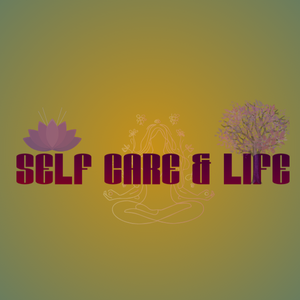Think of a person who hurt you in your time of weakness—a friend, a family member, in-laws, a partner. It might have been the time you required them most, for instance after the days in a new house following marriage, during pregnancy, after childbirth, when facing loss of employment or when seriously sick. But instead of support you felt coldness, criticism or even disregard. Now the same person is in a similar position and all they get is love and understanding, all the civility that you deprived them of.
“Sometimes, the hardest part isn’t letting go of the memories—it’s letting go of the grip they have on us.” Like, life is laughing at you because remember how unfair everything was? Every memory sits heavy, one on your chest top and when you feel the start of one sinking away a new floats up. Before you know it, this one tragic moment is not just playing on repeat in your head but becomes a pathway to the vault of each time you have ever felt unseen and every cut that still stings.
—
### The Cycle of Painful Memories
“The past is a place of learning, not a place to live.”“Yesterday is a relic, not a residence.“ The brain is very good at remembering pain, especially when it comes from betrayal or isolation. It is almost a defense mechanism this preservation of memory, so that we do not fall into the hurt once again. But sometimes, such kind of reflex translates to being wrapped in a prison cell made up only by resentment and sorrow. We want to release, set ourselves free. And yet, it has this air of inevitability — as though we are all tethered to the past and there is no slipping free.
They spring from nowhere, bringing you back to those moments of abandonment and when all you needed was warm words but got icy coldness instead. And, somehow or another… there they are: the people who turned you down for help, now soaking in that support which was denied to you. It feels like an old wound being torn open, and the sting of it is so painful… And why is that memory clamped down on us so hard? Even after all we do, why can’t they ever just leave us alone? What is the big deal with these memories anyway? But why do we seem to live on repeat only in one part of our beings, the rest left untouched?
It happens a lot but it becomes very painful. We keep getting stuck in old wounds and hurts because they hold us back:
1. Emotional Attachment
Emotions enhance the sting of memories. Bonds of Painful Experiences hold our minds to unresolved emotions that are difficult for the mind to break. These are the memories that reside as emotional bookmarks — notches on our brains to remind us, hey pal, don’t forget that this thing HURT you.
2. Lack of Closure
Closure seems like something we pursue, some kind of neatly wrapped conversation that gives our hurt the validation it craves. And if we don’t work on dealing with pain, our mind is constantly re-creating and replaying scenarios in search of a resolution that might never have been delivered. Not having closure leads us to reassess ourselves and our wounds go unhealed.
3. The Comparison Trap
When we see someone mistreat us get the opposite of that, it seems unfair
. Why did they get kindness, when we only received harshness? This comparison keeps us locked in resentment, focusing on the inequality of life rather than our own healing.
“Comparison is the thief of joy, but resentment is the thief of peace.”
4. Fear of Letting Go
Other times, it just feels safer to hang on. We think if we forget or forgive, then it dilutes our experience. We are afraid that by moving on, we let the person get away with what they did.
5. Unconscious Belief
Being perfectly honest, maybe we think that if we remember these things and keep them close to our hearts then somehow they offer some sort of protection. If that pain is kept in our memories, it will not occur again. However, this idea only holds us hostage to pain not evolution.
###Breaking Free: Walk in Peace
Yes, fortunately letting go is possible! While it probably seems like a daunting thing to do, there are ways we can move forward and finally let go of those things that hurt us in the past so that what is rightfully ours—our peace.

1. **Acknowledge Your Painful memories**
We have to honor our pain before we can release it. Acknowledge that you are in pain, mad or betrayed. Allow yourself to feel like this, without chastising your self Journaling is a powerful way to work through these feelings. Write it all down — every memory, every grudge. Allow it to spill itself onto the page.
“Healing starts the moment we accept our pain and let it breathe.”
2. **Shift Your Perspective**
Pretend everything is happening to someone else_SEC Consider the person who caused you pain also as a human being with imperfections and vulnerabilities. That is not to excuse their actions, but the commonality between all us allows you to have some input as to where they were coming from—not that it was justified.
3. **Forgive, but Don’t Forget for Them—Do It for You**
Forgiveness is interesting in that it really has nothing to do with the actual event or the other person — but rather, YOU. When you forgive, you break the chain binding you to the past. Forgiveness is not about erasing the memory but finding peace despite it. Remind yourself, “I forgive, so I can be free.”
“Forgiving is not forgetting. It’s choosing peace over pain.”
4. **Live in the Present Moment**
Mindfulness is a powerful weapon for freeing us from our painful past. Ground yourself in the now, when memories pull you back. So, take a few deep breaths and notice the place you are in right now (including some bystanders) — bring your mind back to today. Mindfulness quiets the ghosts of old pain.
“The present is the only place where true healing happens.”
5. **Create New Memories**
Do what makes you happy. Stay away from people who put down, instead surround yourself with those that lift you up; Find the activities which makes your soul happy.And new positive memories can gradually overwrite the painful ones so it is easier for you to put your past behind.
6. **Embrace Self-Compassion**
Be as gentle with yourself now, as you wish others had been then. Remember to take care of yourself, speak nicely to yourself and that your feelings are real. Self-compassion increases your inner strength, helping you to release the hurt caused by other people.
—
### A Final Thought: Moving On with Compassion
“Letting go is not an instant moment; it’s a journey of small steps.”
We may never forget the wrongs done to us, but we don’t have to live in their shadow. Each day, remind yourself that your worth is not determined by someone else’s treatment of you. takes time and that is all right to have one of those days which seems harder than yesterday. Reddit: You are on the same path as many of us and every miniscule step you take is another toward freedom.
“Letting go isn’t forgetting the past. It’s releasing the hold it has on your present.”
Our happiness is not defined by the past. Therein, step by courageous and compassionate step; we surrender the past so that one day very soon — with each breath inhaled …day to soothe heartache our tale ends, a new libertarian song awakens…
“You cannot change the past, but you can choose to release its hold on you.”



